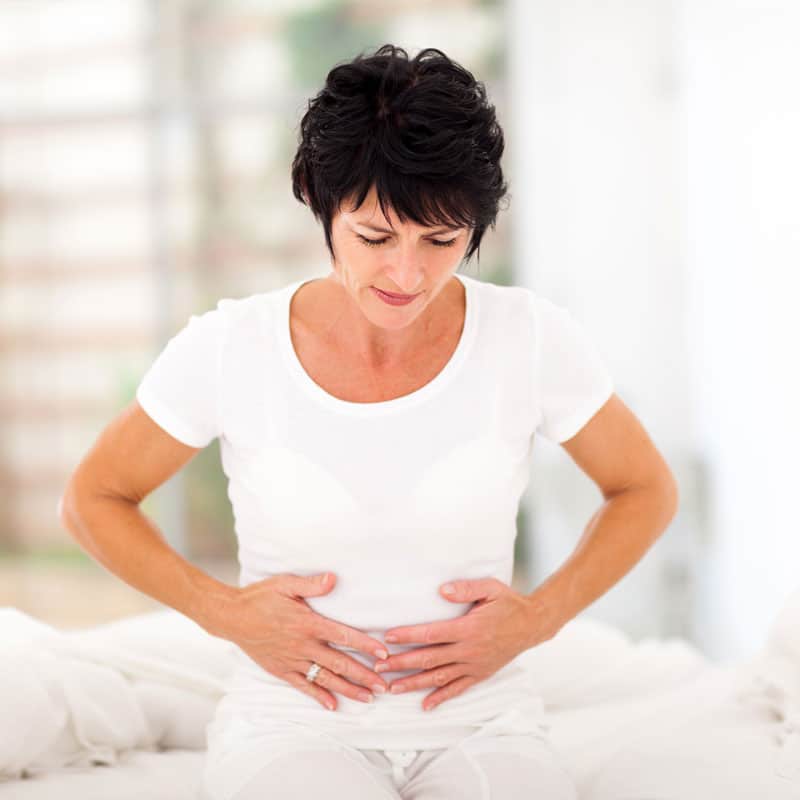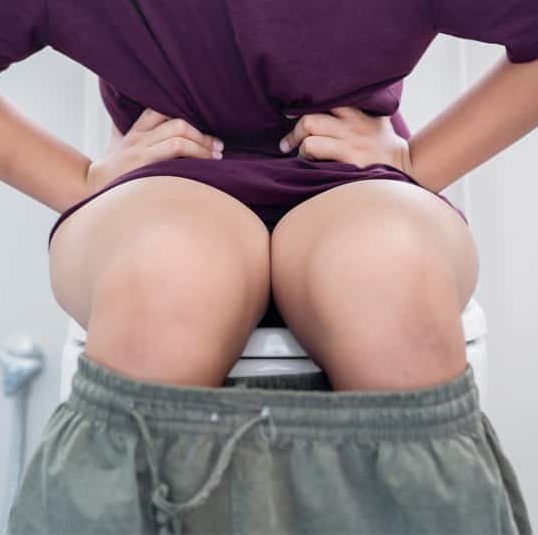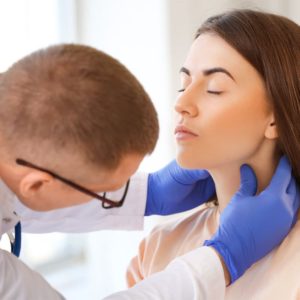index
Menopause is an important milestone in every woman’s life. Still, it can also be challenging to deal with, especially when it comes to the physical symptoms that come along with it, such as hot flashes and mood swings. Fortunately, there are plenty of natural remedies that help reduce menopause symptoms so you can feel more comfortable while going through this period of transition in your life. During this transition, menstrual periods will stop, the amount of progesterone and estrogen produced by the body will decrease, and as a result, symptoms such as sleep problems, mood swings, and decreased metabolism are prevalent. Most women begin transitioning into menopause in their mid to late 40s. When a woman goes through menopause, it can also cause weight gain, wrinkles, adult acne, low libido, and an increased risk of several illnesses. Luckily, there are several things you can do to feel and look your best and treat menopause naturally.

Tips To Treat Menopause Symptoms
Various approaches provide natural menopause relief. These tips will help relieve your symptoms and allow you to enjoy an everyday life.
Improve Bladder Function
One complaint many women have as they transition through menopause is urine leakage. As estrogen levels decrease, pelvic floor muscles weaken, and bladder function decreases. You may have frequent bladder infections, have difficulty controlling your bladder, and need to urinate more often. There are several ways to manage the effects of menopause on your bladder:
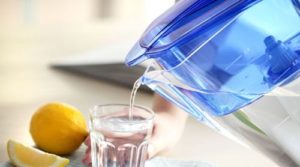
- Kegel Exercises—These exercises help tone your pelvic floor muscles and can effectively relieve stress incontinence. You must perform 10 to 15 Kegel exercises three times a day.
- Pessary—A vaginal pessary is a removal device that supports your pelvic organs. The firm ring presses against your urethra and your vaginal wall to help with bladder leakage. This device is custom fitted and left inside the vagina for three to six months.
- Hydration—Staying hydrated is essential to optimal health. It would be best to drink at least half an ounce of water for each pound you weigh. Staying hydrated reduces the number of “bad” bacteria in the vaginal tract, which can reduce the risk of infections.
Improve Body Composition
As your hormone production changes, so does the shape of your body. As you are going through menopause, you will find that your lean mass, which includes connective tissues, bones, and muscles, decreases as your body fat increases. Furthermore, you may gain weight in your middle to lower abdomen after menopause. The top three things you can do to improve your body composition include:
- Diet—Eating a diet filled with nutritional vegetables, fruits, lean proteins, and healthy fats will help prevent increased fat storage and improve overall body composition. A nutritious diet also helps with hormone regulation.
- Exercise—At least 30 minutes of moderate exercise daily helps increase lean mass and decrease fat storage. Incorporate aerobic and strength training into your exercise regimen to improve your body composition.
- Hormone Replacement Therapy—Hormone replacement therapy regulates hormone levels and minimizes the effects of decreased estrogen and progesterone experienced during menopause. Many women find that it helps to regulate weight, improve skin elasticity, and regulate mood.
- Lose Weight—Around 5 percent of women in their 50s are clinically obese, while a further 20 percent are overweight. Excess weight can cause several health problems and exacerbate existing issues such as hypertension, osteoarthritis, and diabetes. Losing weight can also help relieve some symptoms associated with menopause, including hot flashes, sudden emotional changes, and trouble sleeping. Weight loss is significant at any age, but especially during midlife. Excess weight will make it harder to enjoy life now and may even affect your health later. So don’t put off making lifestyle changes to improve your overall well-being now.
Improve Brain Function
Hormones affect every area of your body, including your brain. Your reasoning, memory, perception, and thinking can also alter when hormone levels change. While going through menopause, you may experience brain fog or difficulty remembering things. A few things that can help include-
- Stress Management—Menopause is a stressful time in a woman’s life. Learning to manage stress through guided meditation, deep breathing exercises, journaling, prayer, yoga, and progressive muscle relaxation can help improve memory.
- Exercise—Exercise boosts blood flow throughout the body, including the brain. Regular exercise increases the production of various neurotransmitters and endorphins, which reduce stress and improve brain health. Menopausal women who work out can decrease the probability of experiencing hot flashes and night sweats, which occur due to irregular hormone production. Aerobic activity also contributes to burning calories and reducing fat gain during menopause. In general, lifestyle changes such as increased exercise and reduced stress levels help control mood swings and depression, which are common symptoms of perimenopause. For those who want to reduce their risk of heart disease, which is a big concern for postmenopausal women, regular physical activity reduces bad cholesterol (LDL) and raises good cholesterol (HDL). Walking is particularly effective; women walking 20 minutes daily experience less fatigue than those who don’t exercise.
- Sleep—During sleep, your brain consolidates memories, stores new information, and repairs and reorganizes the brain cells. To help improve brain health, we recommend getting at least 7 hours of sleep each night.
- Quit Smoking—Smoking is often associated with sudden emotional changes in women, which may include crying, laughing, and even uncontrollable anger. These emotions are withdrawal symptoms brought on by nicotine and other chemicals in cigarettes. The good news is that quitting smoking brings quick relief to menopausal symptoms. It just takes some time to get over your cravings and settle into a new routine. Talk to your doctor about ways to help you quit smoking. For example, If you smoke because of stress, consider exercising or meditating when times get tough instead of reaching for a cigarette. If you smoke when drinking alcohol, switch to club soda or fruit juice while at bars or parties instead of drinking wine or beer. It’s all about finding alternatives that satisfy similar needs without bringing on unwanted side effects like weight gain or increased risk of cancer.
- Get Enough Rest—Many women complain of sudden emotional changes and erratic sleeping patterns during menopause. If you find yourself tossing and turning or waking up in a panic, try getting more rest. Your sleep will likely improve, and your mood may follow suit. Healthy habits like sleep help to alleviate other common signs of perimenopause, such as hot flashes and headaches. For best results, keep a regular bedtime schedule. If you can’t fall asleep at night or wake up groggy during the day, improve your sleep hygiene by removing distractions from your bedroom by shutting off electronic devices an hour before bedtime and creating a soothing bedtime routine.
Improve Breast Health
During menopause, you may notice changes in your breast tissues. The breasts may begin to sag, the nipples may become more sensitive, and your breasts may become tender. In addition to this, the risk of breast cancer may increase. A few suggestions to improve your breast health include-
- Limit Alcohol Consumption—Research indicates that alcohol consumption can increase the risk of breast cancer by 7-10 percent in postmenopausal women. If you decide to drink alcohol, limit it to no more than one drink per day.
- Strength Training Exercise—Strength training exercises such as dumbbell fly, chest presses, pushups, and planks help strengthen the chest muscles, increasing the fullness of your breasts and reducing sagging.
Prevent Sagging Skin
As your estrogen levels decline, your collagen production decreases, which can cause your skin to lose its firmness and volume. Try some of these options for natural help for menopausal skin issues-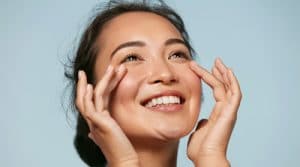
- Facial Massage—Facial massage increases blood flow to the face and can help improve skin texture. Grab your moisturizer and massage your skin using a facial massager or fingertips. If done daily, it can help increase your skin’s elasticity.
- Bone Broth—Bone broth is made by simmering bones and meat for several hours. It is rich in several healthy skin-promoting vitamins and minerals, including calcium, phosphorous, magnesium, vitamin K, and vitamin A. It is also rich in collagen, which helps plump the skin and improve skin texture.
- Collagen Supplements—Collagen supplements can also increase the amount of collagen in the body, which can help improve your skin’s fullness and firmness. Collagen also enhances your skin’s hydration and elasticity.
Relieve Dry, Flaky Skin
Menopause can cause your skin to become dry, itchy, and flaky. Irritating soaps and hot water can further zap moisture from your skin. Some options to relieve your dry skin include-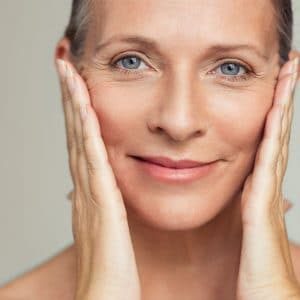
- Gently Cleanse Skin—To wash away makeup and daily grime, use a natural, nonfoaming cleanser specially designed for dry, sensitive skin. When choosing a gentle cleanser, read the labels carefully and look for one that does not contain alcohol, fragrance, or other skin-irritating ingredients.
- Avoid Hot Water—While a hot shower feels fantastic, it can strip your skin of natural oils. Instead, take a warm shower and keep it as short as possible. Finally, moisturize your skin as soon as you leave the shower.
- Moisturizer—Using a daily natural moisturizer can help combat the signs of aging. When shopping for a moisturizer, look for one that contains hyaluronic acid and antioxidants. Hyaluronic acid helps keep skin moisturized by decreasing moisture loss, while antioxidants help fight free radical damage, which can cause premature aging.
Deal with Unwanted Facial Hair
You may notice hair on your chin or upper lips as hormone levels change. There are numerous ways in which you can deal with unwanted facial hair, including:
- Tweezing, Threading, Hair Removal Cream, or Waxing—These hair removal techniques remove unwanted facial hair; however, your hair will grow back. Most women choose one of these hair removal methods because they are affordable, easy, and convenient at home.
- Electrolysis—Electrolysis destroys growth cells in hair follicles, preventing hair from growing back. Typically, they achieve the results after several appointments.
- Laser Hair Removal—Laser hair removal is a permanent way to remove unwanted facial hair. It works best on dark hair. You should find an experienced laser hair removal specialist, as scarring can occur if not done correctly.
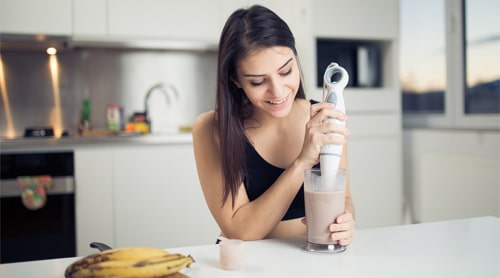
Foods That Help with Menopause
Menopause causes your estrogen levels to decline. When this occurs, your weight may increase, and you may experience joint pain, hot flashes, and a plethora of unpleasant symptoms. Eating the right foods can ease many of these symptoms. Here is a list of the foods that help with menopause naturally –
- Calcium-Rich Foods—Many women do not realize that their bones change during menopause. As estrogen levels decline, the risk of bone loss increases. One way to counteract this is to eat various calcium-rich foods each day. On average, you should seek to get between 1200 and 1500 milligrams of calcium daily.
- Protein—During menopause, you are at an increased risk of reduced muscle mass and bone strength. Incorporating lean proteins like beef, turkey, chicken, beans, lentils, and tofu will improve your health while helping you maintain a healthy weight.
- Soy—Soy has been used for centuries to help with menopausal symptoms. Soy can help reduce or eliminate night sweats and hot flashes. Soy contains phytoestrogens, which help mimic the natural estrogen in the body. Incorporate soybeans (preferably organic and non-genetically modified), edamame, soy milk, tofu, and other soy products into your diet to improve your menopausal symptoms.
- Adding just 1/2 cup of chopped cantaloupe melon to your daily diet will help you meet your needs for vitamin C. In addition, you’ll get plenty of B vitamins and potassium (270 milligrams), which research suggests is beneficial to regulating estrogen levels in postmenopausal women.
- Avoid Saturated Fats—Saturated fats from animal products can increase your risk of heart disease. Instead, opt for fatty fish and nuts such as walnuts. They contain monounsaturated and polyunsaturated fats, which are healthier options. Also, remember to limit your intake of processed meats, which can increase the risk of heart disease and cancer. Processed meats include bacon, sausage, hot dogs, and ham. If you eat meat, choose lean cuts of chicken or turkey without skin to keep your cholesterol levels down. Milk, cheese, and yogurt are all high in calcium, but limit their intake if you’re trying to lose weight, as excess calories from any source add up quickly. And lastly, watch out for salt intake.
Supplements for Menopause
Menopause causes several unpleasant symptoms, including weight gain, mood swings, hot flashes, and sleep problems. Some helpful and effective natural supplements to help relieve the symptoms of menopause include the following –
- Black Cohosh—One of the most well-known menopause supplements is black cohosh. Users report that with regular supplementation, black cohosh can help relieve vasomotor symptoms like night sweats, chills, and hot flashes. However, it is essential to avoid black cohosh if you have any liver issues.
- Ginseng—Ginseng, used in Traditional Chinese Medicine, has relieved women for thousands of years. It helps to stabilize the mood, improve skin condition, and reduce hot flashes and night sweats.
- Red Clover—Red clover contains natural plant estrogens that may help ease menopausal symptoms. A red clover supplement may help reduce bone loss, hot flashes, and vascular inflammation.
- Vitamin B12—One easy way to beat hot flashes is by taking a B12 supplement. Like other B vitamins, vitamin B12 helps keep your nervous system healthy and regulates mood. If you take it daily, most people notice a decrease in their hot flashes within two weeks. Ensure you get vitamin B12 with methylcobalamin since that’s what your body uses. Some women choose to use vitamin B12 as an alternative to hormone replacement therapy (HRT). However, if you have trouble sleeping or are dealing with anxiety, don’t rely on supplements alone; instead, talk to your doctor about whether HRT might be right for you.
Holistic Treatment for Menopause

Menopause affects every aspect of your life. During menopause, you may experience hair loss, changes in your skin texture, joint pain, and changes in your overall health and well-being. Your body knows how to cope with these changes, and you’ll see that simple solutions can help. All it takes is a little thought and consideration and an appetite for fruit and vegetables. Once you start feeling better, you’ll want to keep eating fresh fruits and veggies. You might even lose weight. Both should make life after menopause much more manageable.
Managing menopause symptoms is all about balance. Too much of anything, including medication, can be harmful, so it’s essential to monitor your intake of both drugs and supplements. If you want to balance hormones naturally or you take hormone replacement therapy (HRT), talk to your doctor about what dosage is correct for you, as well as any potential side effects or interactions with other medications. Herbal supplements can also be beneficial in managing menopause symptoms, but again, it’s essential to check with a medical professional before taking any supplement.
Are you ready for a holistic approach to treat menopause naturally? Our menopause doctors understand how to help you transition through menopause while minimizing the effects of hormone changes. We will work with you to improve skin health, reduce hot flashes, minimize weight gain, and improve your body composition using proven, effective, holistic treatments for menopause symptoms.













